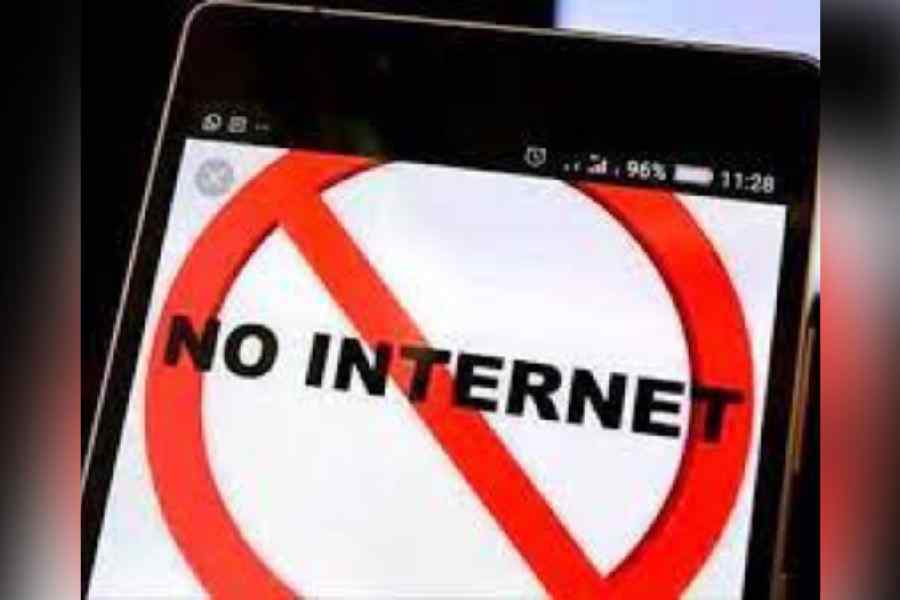India, the mother of democracy in the words of the prime minister, is no longer the global leader when it comes to the imposition of internet shutdowns. But it still remains the country with the second-highest number of such transgressions. Data compiled by Access Now, a non-profit, digital rights advocacy group, show that in 2024 Myanmar — the country has been under the boots of a military junta after a coup against a democratically-elected government in 2021 — had shut down internet services 85 times; India had done so 84 times in the corresponding period. Neither Myanmar nor India is an outlier in this context. They have company in the form of Pakistan, Russia, Ukraine, Palestine and Bangladesh, nations with weak democratic moorings or ravaged by conflict. In fact, statistics reveal a surge in internet outages globally. From 283 shutdowns ordered by 39 countries in 2023, last year witnessed 296 such disruptions by 54 nations. This, in fact, is suggestive of a setback to people’s rights in the sphere of information that has corresponded with the global retreat of democracy as well as the ascendancy of elected authoritarian regimes. That internet clampdowns are occurring in an age in which information is a prized asset would certainly count as an irony.
The causes of infringements on internet usage are diverse. India serves as an illustrative case. In this country, the internet bore the brunt of such phenomena as conflict, communal violence, public protests, elections — even as a measure to stop cheating in examinations. Sixteen states and Union territories were adversely affected, with Jammu and Kashmir, Manipur, and Haryana leading the charge. This bears out the fact that in the administrative playbook, security is prioritised over the free flow of information; this perhaps has to do with the fact that the internet, given its reach, is often used as a lightning rod to raise the sparks that lead to a fire. But the administrative response has serious public repercussions. It infringes on the collective right to know as well as share views; small businesses that depend on the internet as a facilitating medium incur losses as do schooling and education that are increasingly reliant on the digital world; the ability of the people, the media and civil society to hold the powers that be accountable by using the internet as a tool is weakened. In a country where the highest court of the land has declared access to the internet to be a fundamental right, the State’s need to throttle the medium exposes its own lack of confidence and trust in its subjects.











